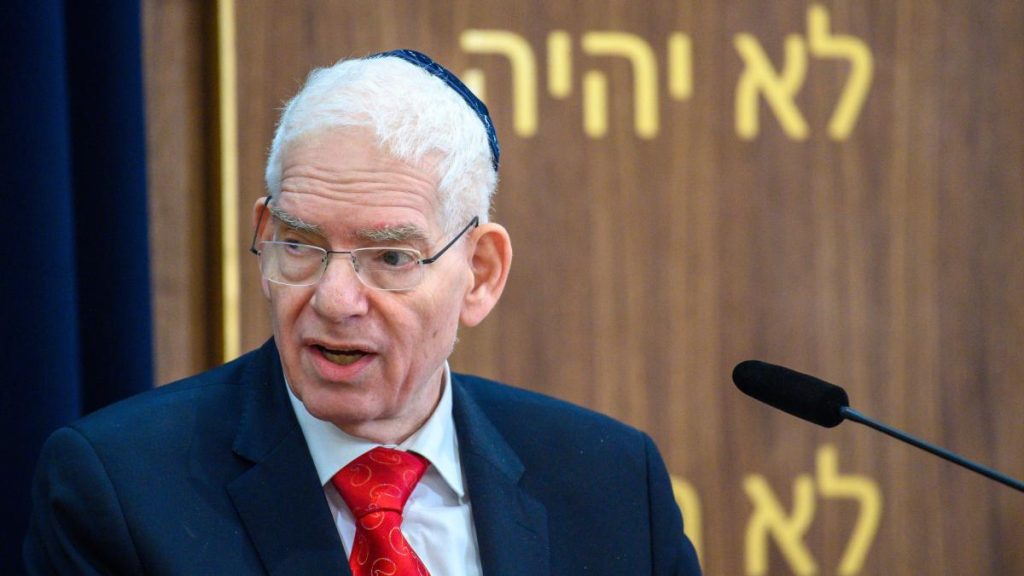In Berlin, there is controversy surrounding a planned “Palestine Congress” set to take place over the weekend. Josef Schuster, President of the Central Council of Jews, has condemned the event as a “display of anti-Zionism.” According to the Berlin Senate’s Department of the Interior, participating groups will include those from the “boycott spectrum.”
The Central Council of Jews has strongly criticized the upcoming “Palestine Congress” in Berlin, with Schuster stating that the event is a showcase of anti-Zionism and is unlikely to provide any answers to the suffering of the civilian population in Gaza. He also emphasized the importance of acknowledging Hamas’ terror tactics and strategies against its own population, as ignoring this discredits the legitimacy of the event.
Since the announcement of the Congress, there has been backlash and criticism, particularly from groups associated with the anti-Israeli “boycott spectrum.” Additional anti-Israeli groups such as “ArbeiterInnenmacht” (GAM), “Revolution” (REVO), and the “United Palestinian National Committee” (VPNK) have also mobilized. The exact location of the Congress has been kept secret, with the organizers planning to announce it on Friday.
The Central Council is part of a bipartisan “Alliance Against Anti-Semitic Terror” that is collectively opposing the event and calling for dissent. The group anticipates terrorism glorification and calls for Israel’s destruction at the Congress, leading to support for protest against it. The alliance includes organizations like the Amadeu Antonio Foundation, as well as politicians from various parties such as the FDP, SPD, Greens, CDU/CSU, and Left. Their message emphasizes the need to speak out against anti-Semitism and terrorism glorification in line with the motto “Never again is now.”
The controversy around the “Palestine Congress” in Berlin highlights the ongoing tensions surrounding the Israeli-Palestinian conflict and the differing perspectives on the situation. With various groups and individuals voicing their opposition to the event, the debate over the appropriate ways to address and engage with these sensitive political issues continues. As the Congress approaches, it remains to be seen how the situation will unfold and what actions will be taken in response to the concerns raised by the Central Council of Jews and other critics.


